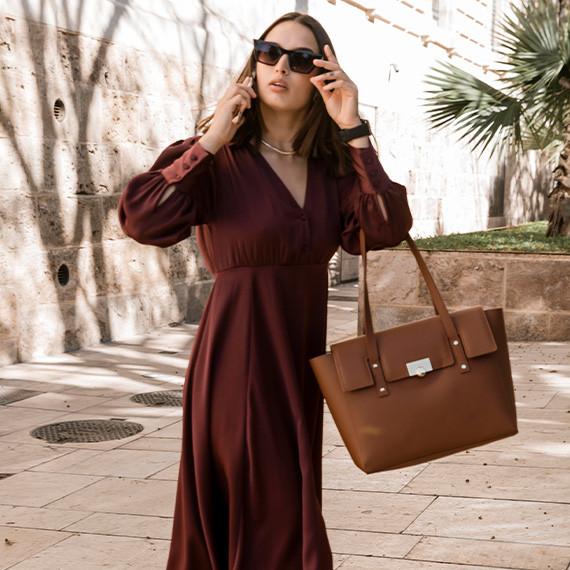In the world of fashion, dressing for success has long been associated with professional attire and the idea that a well-chosen outfit can boost one's confidence and performance.
The Rise of Sustainable Vegan Leather Alternatives: A Comprehensive Guide
17 Jun, 2023 - Fashion
As fashion continually evolves, so does our perspective on sustainability. One of the most significant transformations within the industry in recent years has been the rise of sustainable vegan leather alternatives. This comprehensive guide delves into the world of innovative, eco-friendly materials that are changing the landscape of fashion.
The Leather Dilemma
Traditional leather production, often associated with the fashion industry, has long been criticized for its environmental and ethical impacts. Conventional leather is derived from animal hides, and its production involves resource-intensive processes, such as tanning and dyeing, which release harmful chemicals into the environment. As the fashion industry increasingly seeks to embrace sustainability, vegan leather alternatives have emerged as a promising solution.
Mushroom Leather: A Fungi Revolution
One of the most exciting developments in sustainable fashion is mushroom leather, also known as mycelium leather. This material is created by cultivating mycelium, the underground root structure of mushrooms, into a durable and leather-like substance. It's biodegradable, requires minimal resources, and has a significantly lower carbon footprint compared to animal leather.
Mushroom leather offers a texture and appearance similar to traditional leather, making it a viable alternative for high-end fashion brands. What's more, it's a renewable resource, as it can be grown and harvested without harming the environment or animals. Companies like Bolt Threads and MycoWorks are pioneering the use of mushroom leather in their collections, creating a buzz in the fashion world.
Grape Leather: A Vintage Twist
Ever wondered what happens to grape skins and seeds after winemaking? Sustainable innovators have found a solution. Grape leather, often referred to as "wine leather," is made from the byproducts of the wine industry. This material not only repurposes waste but also offers a unique texture and natural hues, making it a stylish and sustainable choice for fashion designers.
Grape leather is incredibly versatile and can be used for accessories, shoes, and clothing. Brands like Vegea are leading the way in grape leather production, showcasing the potential for transforming agricultural waste into fashion statements.
Cactus Leather: Prickly Chic
Cactus leather, or "nopal leather," is an exciting addition to the world of vegan alternatives. Derived from the nopal cactus, this material requires minimal water and land usage. It's drought-resistant, making it an ideal choice for arid regions. The cactus is harvested sustainably, and the production process involves natural, non-toxic dyes.
With its natural appearance and durability, cactus leather has been gaining attention from both fashion designers and consumers. Brands like Desserto are at the forefront of this innovative trend, offering products that merge sustainability and style.
Apple Leather: A Fruitful Innovation
Apple leather is another remarkable sustainable alternative that repurposes agricultural waste. This material is made from apple peels and cores discarded during apple juice and cider production. Through a process that involves cleaning, mashing, and dehydrating the fruit remnants, apple leather is created.
What makes apple leather stand out is its unique texture and breathability. It's an excellent choice for handbags, wallets, and footwear. Brands like Frumat and Pinatex are taking advantage of this eco-friendly resource, contributing to a circular economy in fashion.
Algae Leather: Dive into Sustainability
Algae leather is a unique and eco-conscious alternative that comes from a surprising source—algae. This material is not only renewable but also biodegradable. Algae cultivation helps mitigate harmful algal blooms in bodies of water, making it a win-win for the environment.
The fashion industry is exploring the potential of algae leather for various applications. It boasts a distinctive appearance that's perfect for accessories and outerwear. As more research is conducted on this fascinating material, it could become a staple in sustainable fashion.
The rise of sustainable vegan leather alternatives marks a significant step toward a more eco-friendly and ethical fashion industry. These innovative materials not only reduce the environmental footprint of the fashion world but also offer unique textures and appearances that cater to a wide range of styles and tastes. As we move forward in 2023 and beyond, the world of fashion is bound to see a remarkable transformation, with sustainability at its core. So, whether you're a fashion enthusiast or a designer looking for fresh inspiration, keep an eye on these groundbreaking alternatives that are shaping the industry's future.

